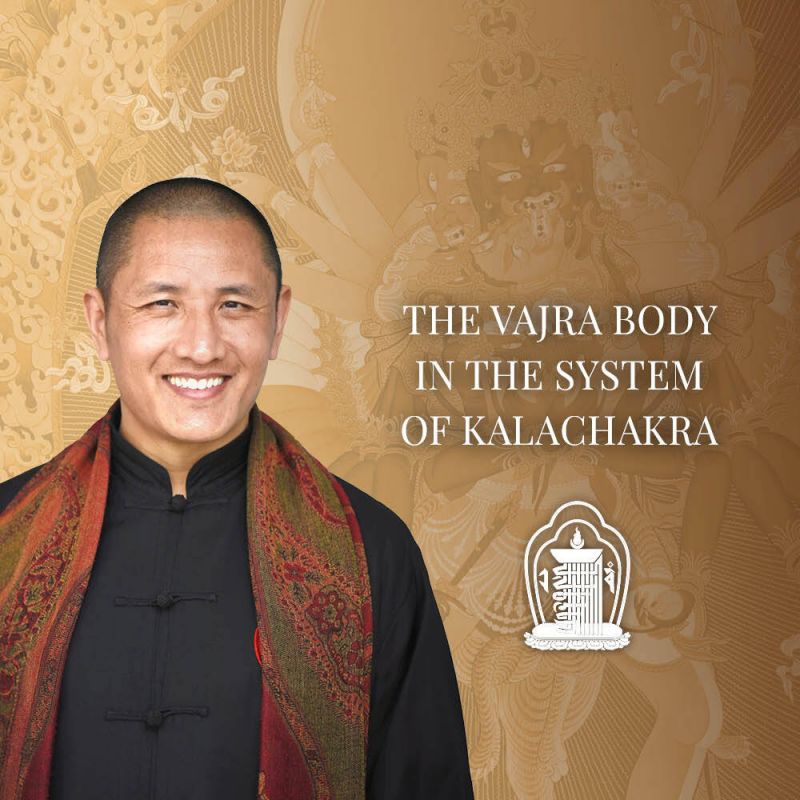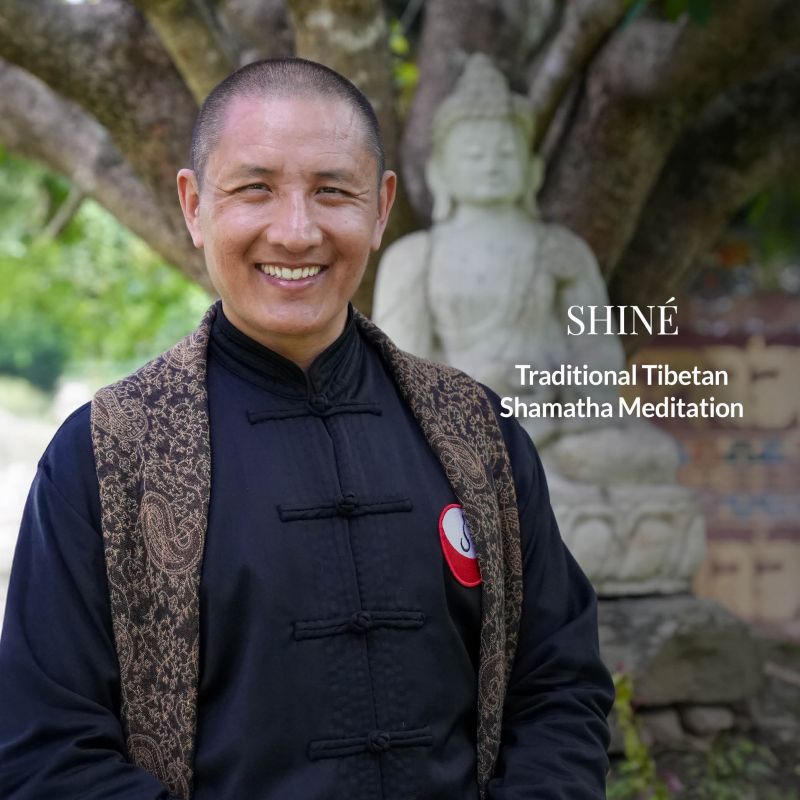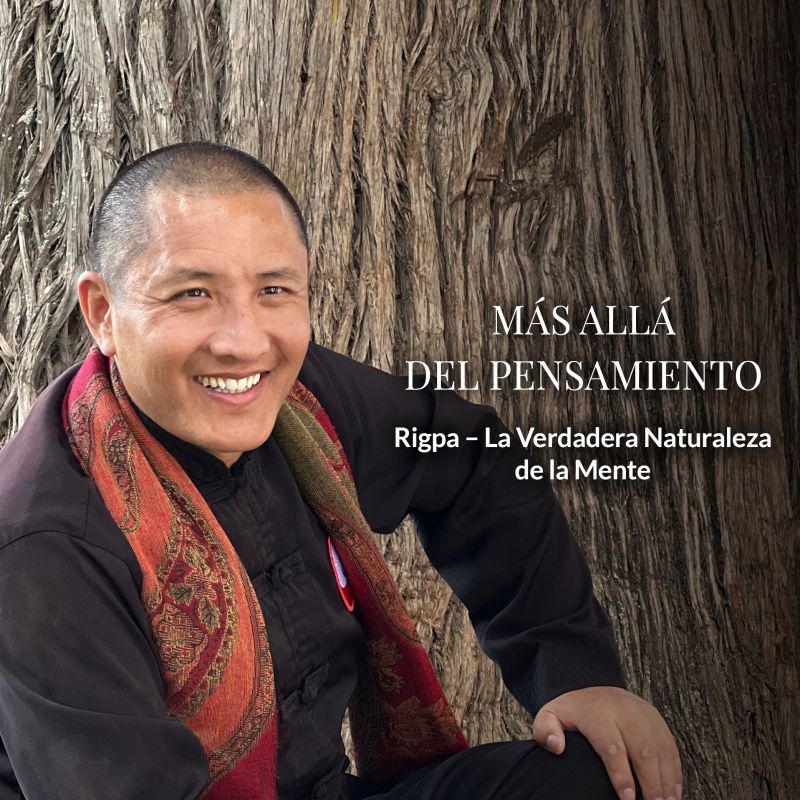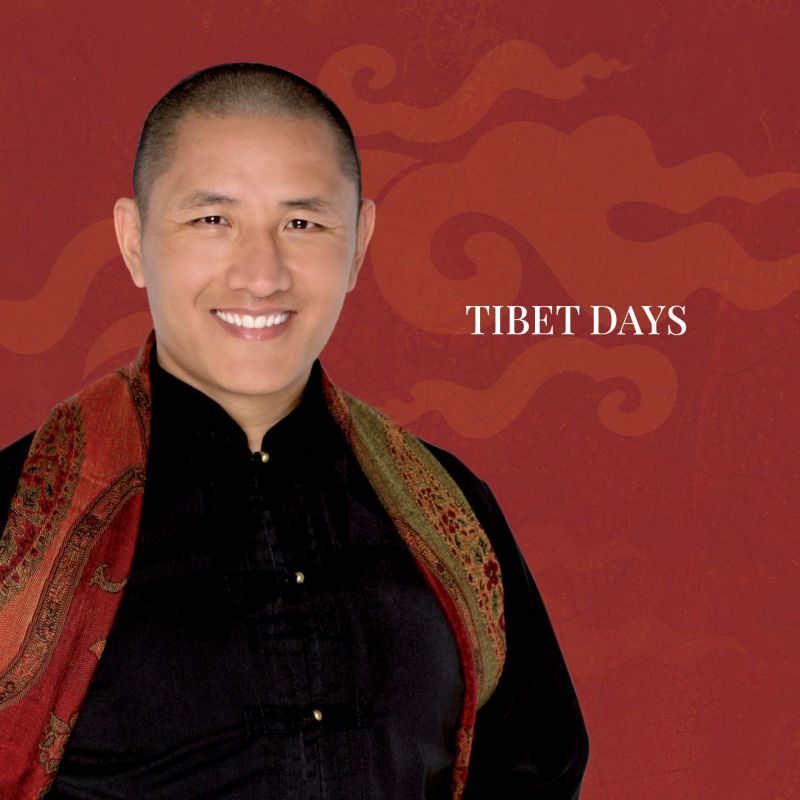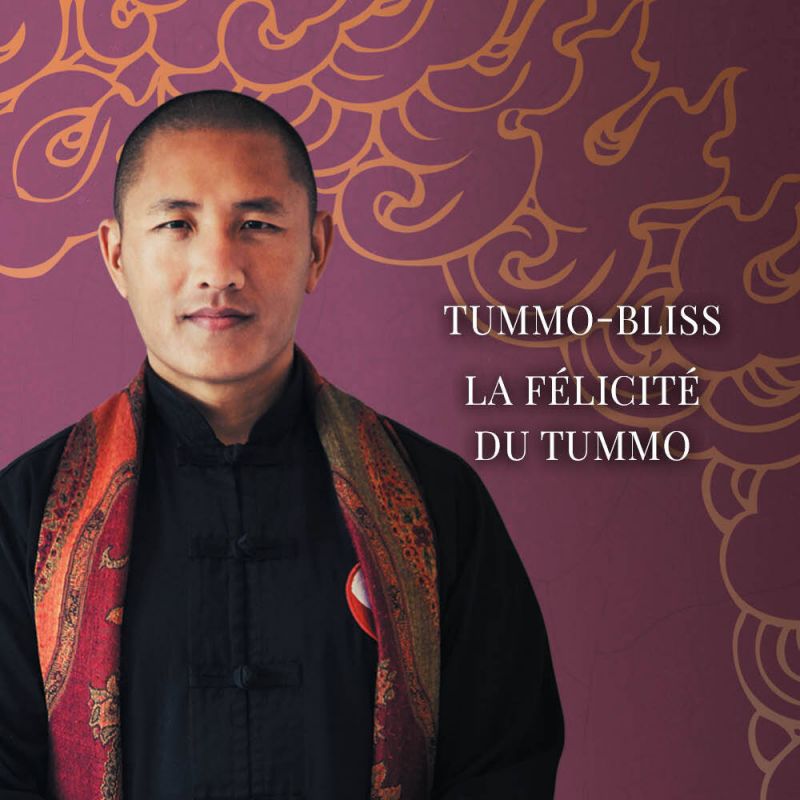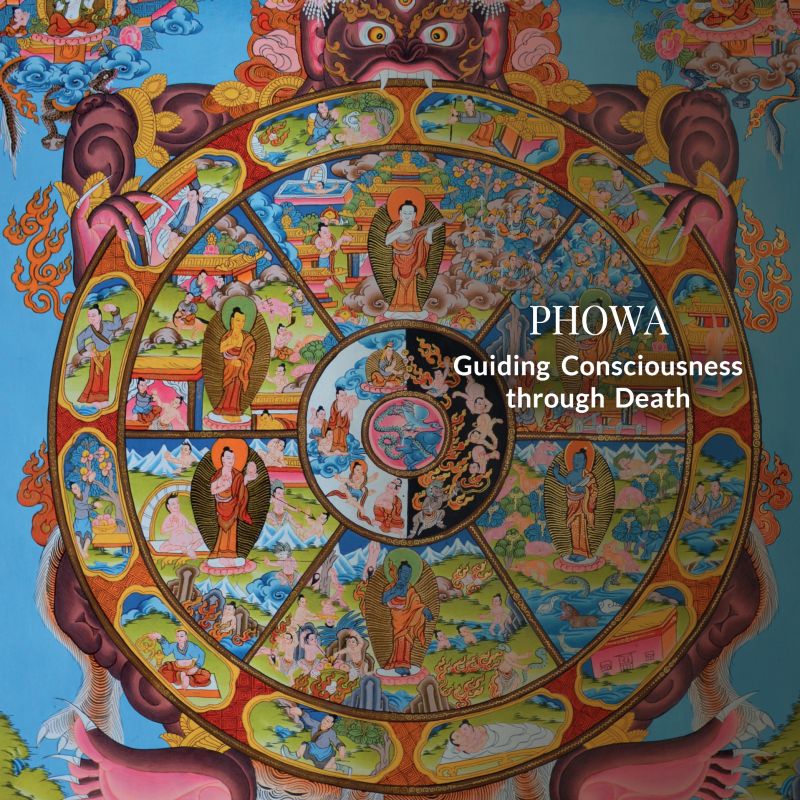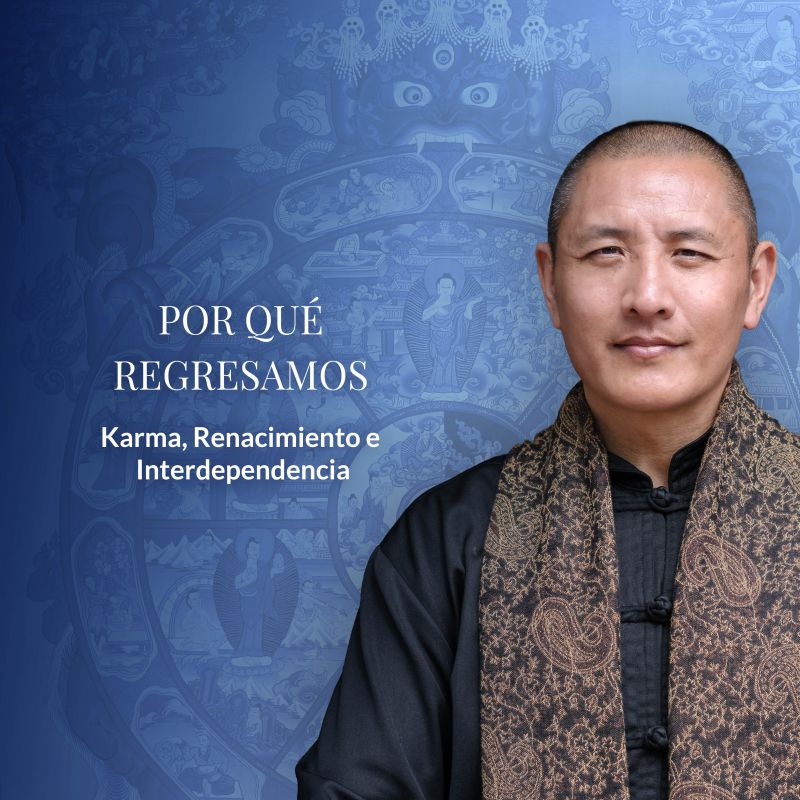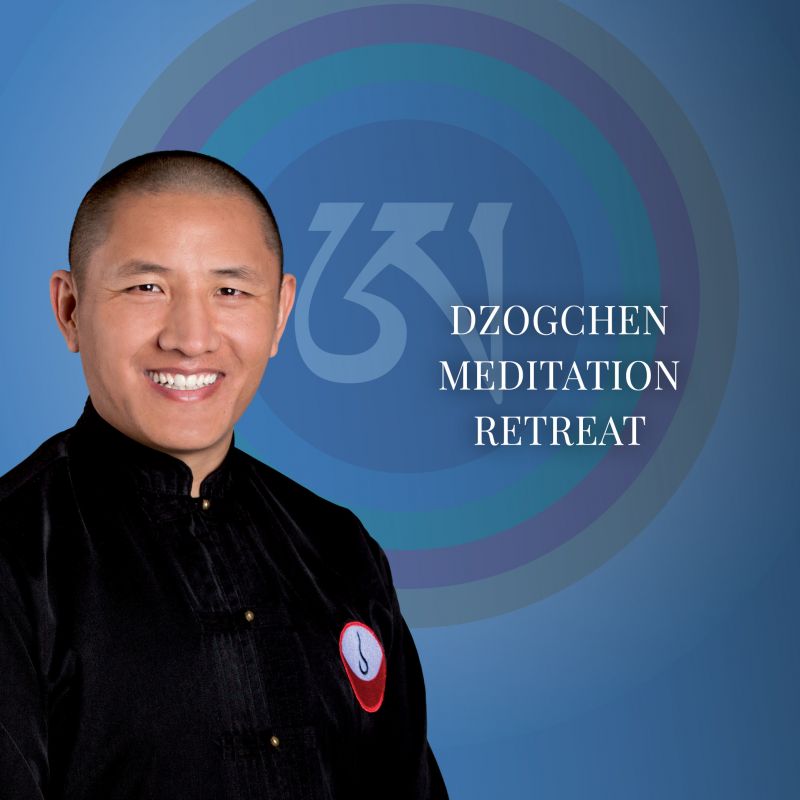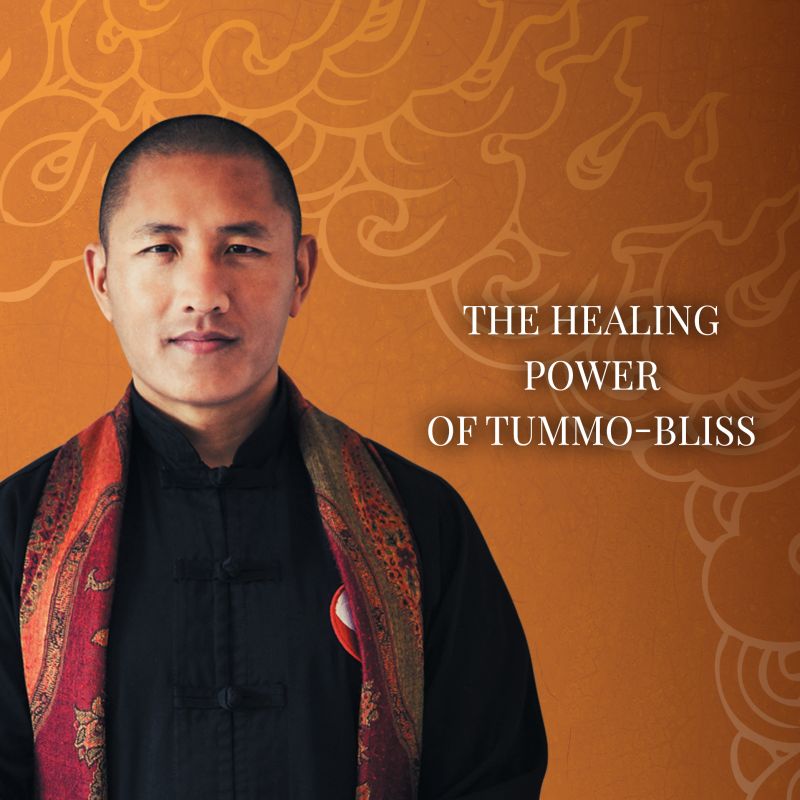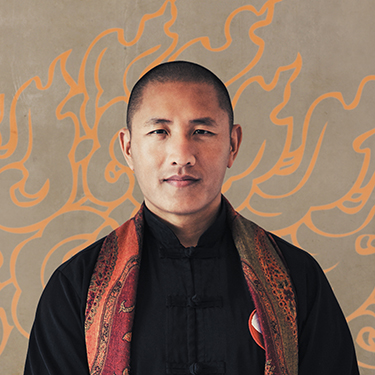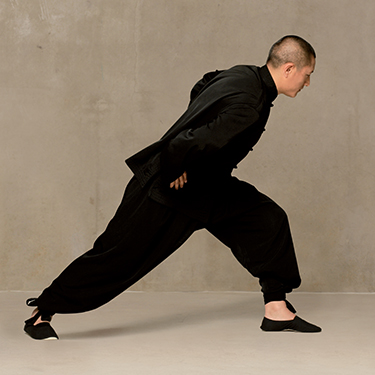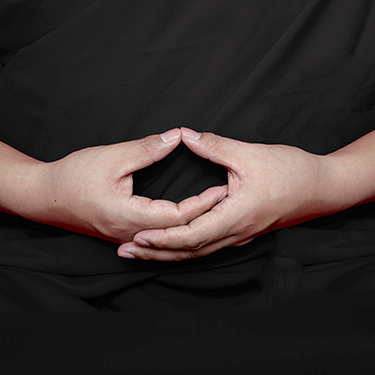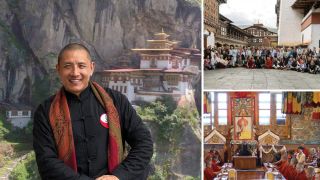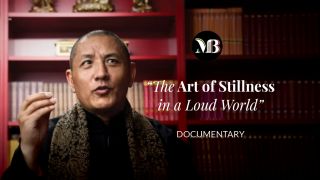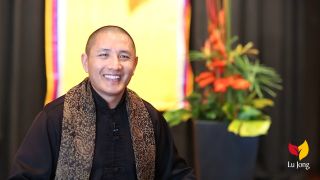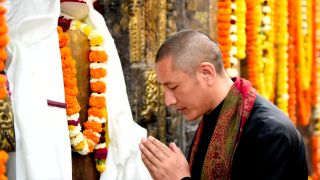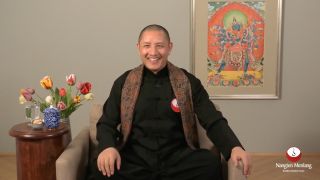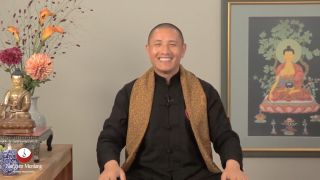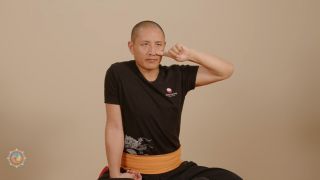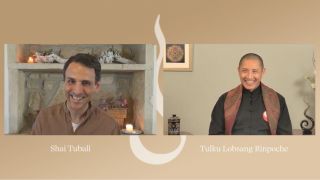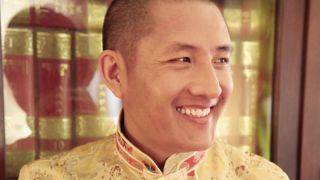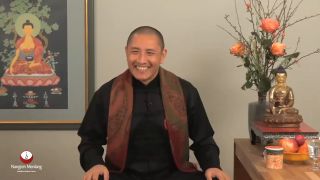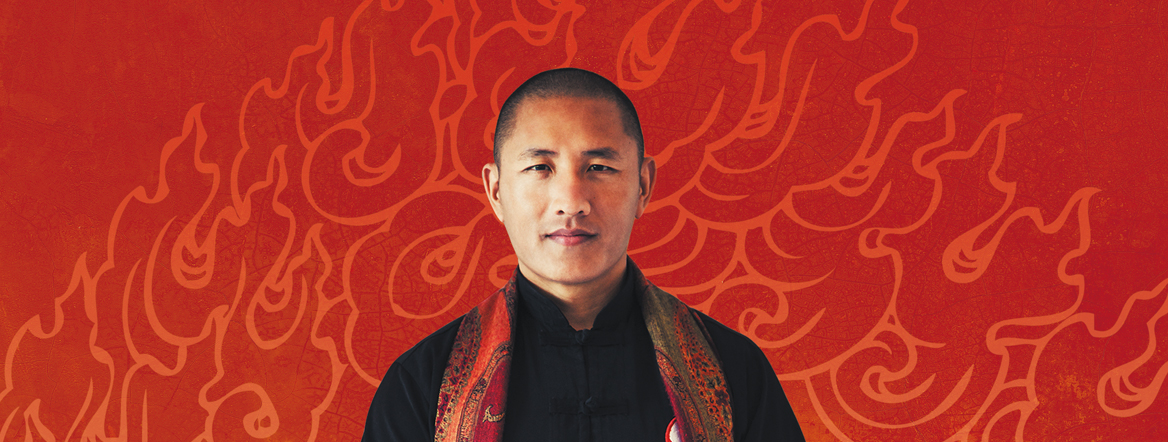
Eventos Destacados
"La sabiduría del budismo es la vacuidad;
el método del budismo es la compasión"
Tulku Lobsang Rimpoché
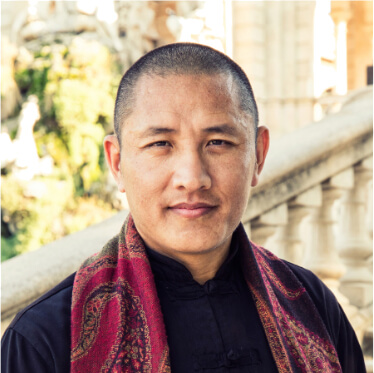
Tulku Lobsang Rimpoché
Tulku Lobsang Rimpoché es un gran maestro budista. Nacido en Amdo, al noreste del Tíbet, Tulku-la fue reconocido como la octava reencarnación de Lama Nyentse a la edad de 13 años. Rimpoché basa sus enseñanzas en el antiguo conocimiento Tantrayana, que es la base tanto del budismo tibetano como de la medicina tibetana. Tulku-la viaja por Europa, América y Asia compartiendo su profundo conocimiento de esta preciosa sabiduría.
Las enseñanzas de Tulku Lobsang Rimpoché se caracterizan por su naturaleza bondadosa, divertida y afectuosa. Rimpoché tiende puentes y une mundos, traduciendo la antigua sabiduría de su venerable linaje de transmisión en consejos prácticos realmente valiosos para el día de hoy. El mayor deseo de Tulku-la es reducir el sufrimiento en el mundo compartiendo este profundo tesoro de sabiduría. El trasfondo tradicional de Rimpoché unido a su estilo carismático y directo hacen de él un maravilloso y sabio maestro.
Videos
Tulku Lobsang Rimpoché y el Tummo en National Geographic
Rimpoché participó en el programa de televisión de National Geographic "La historia de Dios con Morgan Freeman". En el episodio "¿Está Dios Dentro de Nosotros?", Tulku Lobsang presentó Tummo -una antigua práctica del budismo Tantrayana- y habló sobre su poder para conectarnos con lo divino dentro de nosotros mismos, con la naturaleza de Buda innata en todos nosotros.
Como experto en Tummo, habiéndolo practicado durante más de 25 años y enseñado a innumerables estudiantes, Rimpoché también comparte este preciado conocimiento en su curso “Strengthen Your Self-Healing Powers with the TUMMO – Inner Fire Practice” (por el momento disponible en inglés y alemán).
Aquí puedes ver el trailer de National Geographic (solo disponible en inglés):
„Nada es difícil hasta que crees que es difícil.
Nada es fácil hasta que crees que es fácil.“
Audio
- Detalles
- Escrito por Jose Torices
- Categoría: Audio
- Visto: 19976
All beings try to overcome suffering and reach happiness. For reaching this goal we take on a lot of effort. But all our methods cannot satisfy our ego on the long term. In Tibetan philosophy's view happiness is based on the ability to share happiness and joy with others. The only way to reach that, is the practice of Tonglen, the principle of giving and taking. Only after learning to give without expecting something in return, giving does not have is root in our ego. This is the only way to experience permanent happiness.
- Detalles
- Escrito por Jose Torices
- Categoría: Audio
- Visto: 45314
Tog Chöd, the wisdom sword, is a combination of body postures, movements and visualizations. This meditation practice can help us to reduce fear and expectation, dissolve mental imprints and overcome negative emotions.
By practicing Tog Chöd we learn to cut our thoughts. Thanks to this we can cut expectations, concepts of truth and fear. This important for being able to live in the present moment, instead of wandering with the thoughts into the past or the future.
- Detalles
- Escrito por Jose Torices
- Categoría: Audio
- Visto: 20230
Rigpa is the opposite of ignorance. Rigpa is a practice to see ourselves.
When we practice Rigpa, we simply leave everything and look. The mind is like water. When it is still, it naturally becomes clear. When we leave everything alone, without judgment or reaction, and simply perceive what is there, we begin to recognize the nature of mind. To do nothing and to leave everything how it is, is the most difficult thing! In this way, we use our mind to observe our mind. This is how we come to deeply know ourselves.
- Detalles
- Escrito por Jose Torices
- Categoría: Audio
- Visto: 25234
Lu Jong is an old Tibetan practice of the tradition of Tantrayana and Bön. The body exercises have been developed in order to activate our self-healing-energies. With the help of the exercises we can support healing processes positively, overcome negative emotions and increase our energy. Lu Jong is based on Tibetan medicine, which assumes that diseases are the consequence of an imbalance of the elements or humours. Through the combination of position, movement and breath Lu Jong can open physical channels and blocks in a soft way and mobilize misdirected energy. In this way our physical health, mental clarity and vitality are improved. These characteristics are the base for spiritual practice.

